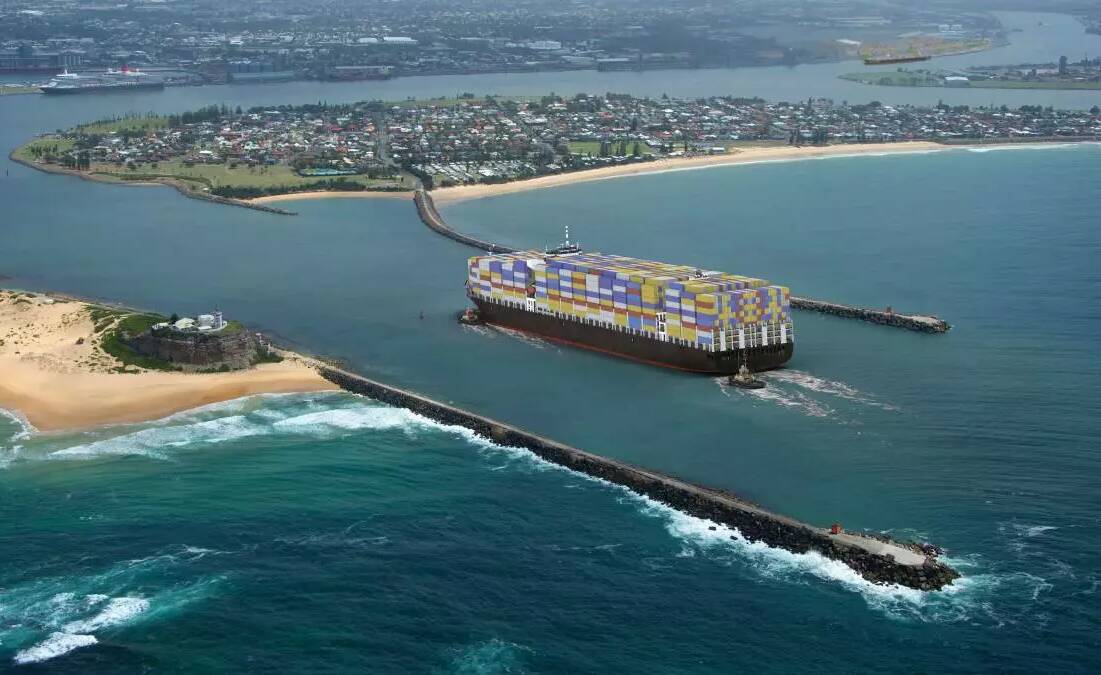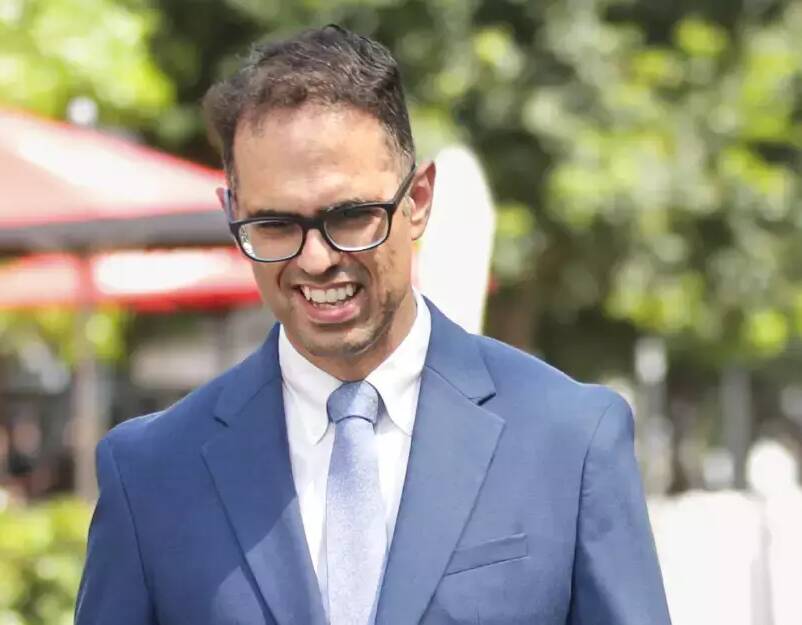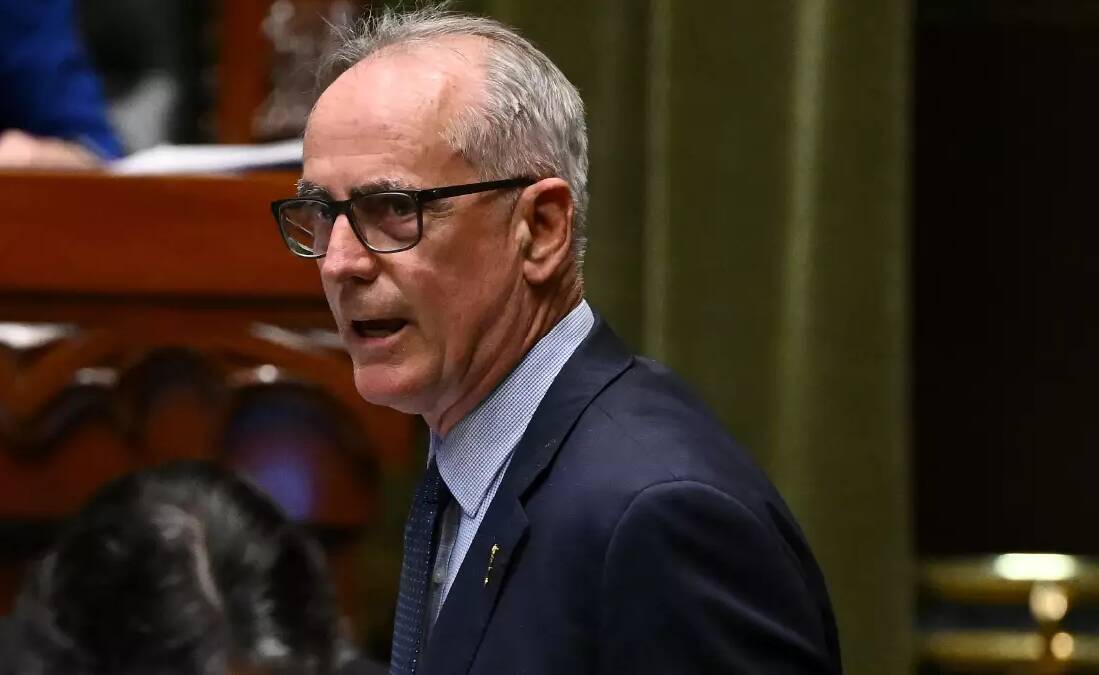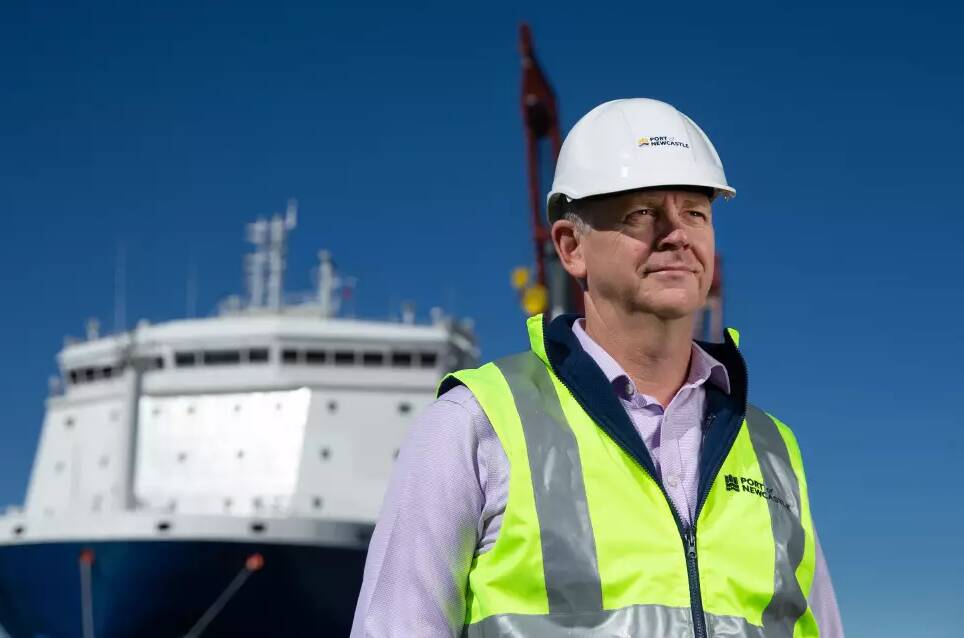
Lake Macquarie MP Greg Piper has called on the government to release modelling that shows taxpayers could be forced to pay up to $4.3billion if a container terminal is established at the Port of Newcastle.
Treasurer Daniel Moohkey released the figure on Thursday at the same time as he tabled details of privatisation contracts entered into by the previous Coalition government relating to the Port of Newcastle, Port Botany and Port Kembla.
According to preliminary analysis by Treasury and Deloitte Access Economics, NSW potentially faces between a $600 million and as much as a $4.3 billion liability going out to 2063, should some of the terms of sales of the ports be triggered.

They include the development of a container terminal at the Port of Newcastle.
"That is on top of the fact that the state no longer owns, receives revenue from or controls these vital assets," Mr Mookhey told parliament.
"I remind members that the previous government sold Port Botany for $4.3 billion and Port Kembla for $760 million, as well as Port of Newcastle for $1.75 billion. These sales took place in May 2013 and May 2014.
In response to a long running community campaign, Mr Piper moved legislation in late 2022 to extinguish the controversial port commitment deeds that are constraining the diversification of the port.
He restated on Thursday that the port's diversification was essential to the region's economic development.
"We know the privatisation of our ports left NSW with some of the least efficient ports in the world, dudded the state's taxpayers and disadvantaged Newcastle and the Hunter," Mr Piper said.
"The light rail line into Newcastle which was delivered as our share of the port sale price was woefully inadequate when you consider the losses indicated by the Deloitte report.
"The only way to unscramble this egg is to allow the Port of Newcastle to diversify and create thousands of new jobs, grow our State's economy and build efficiencies into the state's port system. My bill got that moving last year."

A Treasury spokeswoman said the government did not intend to release the Deloitte modelling despite Mr Piper's call for it to do so.
The Independent Pricing and Regulatory Tribunal is currently working to set what the price of a one-off payment to the state would be, should the Port of Newcastle wish to extinguish that reimbursement provision. Its report is due in early June.
"What's important now is that IPART releases its decision which will hopefully put the Port of Newcastle on a level playing field and ready for the future," Mr Piper said.
The Newcastle Herald revealed in 2016 the secret deeds relating to the Port of Newcastle.
They oblige the government to compensate the lessee, the NSW Ports consortium, if container traffic at the Port of Newcastle exceeds an indexed cap, which began at 30,000 containers annually. The cap presently sits at an estimated 57,000 containers.
Port of Newcastle chief executive Craig Carmody said the port supported the release of documents relating to the port's privatisation.
"These documents should never have been withheld from the public and shrouded in secrecy," he said.
"Privatising public assets should not only be undertaken for the funding received from the sale, but to also encourage competition, with the ultimate beneficiary the consumer. Unfortunately, this didn't occur with the sale of the ports within NSW, case in point being our need to pursue the Port of Newcastle Extinguishment of Liability Act 2022, led by Greg Piper MP and supported by all political parties in NSW.

"With the documents now made public and the IPART determination concluding the legislative process this year, we look forward to ensuring real competition between NSW's ports to the benefit of all consumers and businesses in NSW."
Correct Planning and Consultation for Mayfield group spokesman John Hayes said the establishment of a large-scale container terminal in Newcastle would be an economic boon for the state, in particular regional communities.
"Choking Sydney with bush freight makes no sense at all so lets hope the payment is only very small and that the Port of Newcastle can get our Container Terminal up and running quickly in a professional and well planned manner that ensures the community gains maximum benefit," he said.
Greg Cameron, a Canberra-based public affairs analyst with a long-standing interest in the Port of Newcastle, the previous NSW (Coalition) government made a commitment on May 31 2013 to pay NSW Ports Pty Ltd for the number of containers handled at the Port of Newcastle above a cap.
"The Minns government declines to acknowledge that this commitment was denied by the previous government before these denials were disproven in July 2016.
"It sets a dangerous precedent if parliament intended to authorise the government to take action that parliament knew nothing about and which the government denied having taken when it was asked."
The NSW Minerals Council said in a statement that the revelations of taxpayer liability relating to the 2014 privatisation were further evidence of the risks involved when critical infrastructure is sold by governments without adequate safeguards.
"Despite being an critical economic asset for NSW, the 2014 sale of the Port of Newcastle failed to include adequate protections for port users," the Minerals Council said.
"While this may have helped maximise the sale price at the time, it also resulted in significant price increases for users of the Port of Newcastle ever since."







